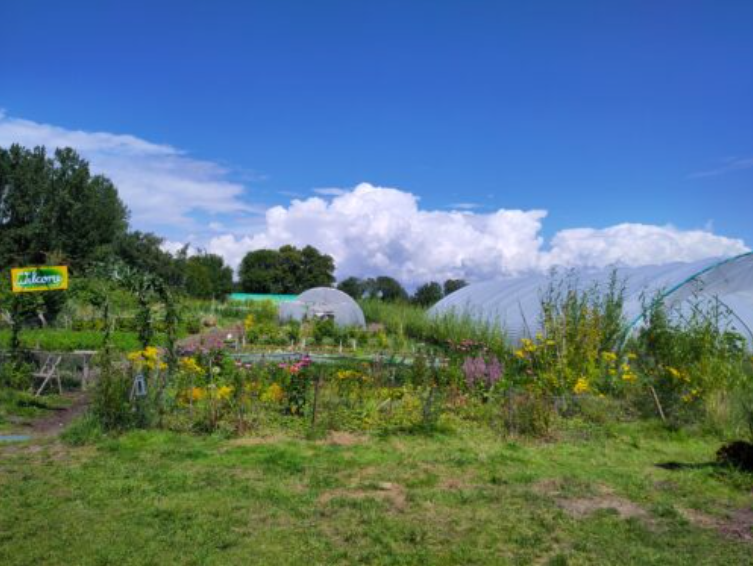CASE STUDY: Alnarp's Agroecology Farm

Photo acknowledgement: Alnarp’s Agroecology Farm
- Vocational
- Outdoor
- Demonstration site / trail, Experiment, Farm
- Sweden
Alnarp’s Agroecology Farm
Alnarp’s Agroecology Farm, located on the Swedish University of Agricultural Sciences (SLU) campus in Southern Sweden, is a student-led initiative focused on sustainable, hands-on, agroecological farming. Established in 2021, this unique educational and farming venture spans 2500 square meters and serves as a platform for experimenting with agroecological practices. Combining ecological methods with community engagement, the farm aims to enhance biodiversity, improve soil health, and support sustainable food production. Its operations integrate learning opportunities for students, foster collaboration among stakeholders, and strengthen the local food system through sustainable agricultural models.
Objective
The primary objective of Alnarp’s Agroecology Farm is to bridge the gap between theoretical education and practical application in agricultural studies. By providing a space for hands-on experience, the farm seeks to:
- Demonstrate agroecological practices that balance environmental, social, and economic sustainability.
- Foster collaboration among students, researchers, farmers, and local consumers.
Support local food systems by promoting Community-Supported Agriculture (CSA) and demand-driven, transparent food production. - Establish a replicable model for small-scale, sustainable farming that addresses global challenges such as climate resilience, biodiversity loss, and food security.
Approach
Alnarp’s Agroecology Farm employs a holistic and innovative approach to achieve its objectives, focusing on the following key areas:
Agroecological practices: The farm integrates traditional agroecological practices with modern low-impact market gardening techniques, such as no-till soil management, compost mulching, crop rotation, and agroforestry. Sustainable practices, such as brewing organic fertilizers from local resources and biodiversity patches are designed to enhance biodiversity and microbial activity, reduce pests naturally, promote carbon sequestration and improving
the future health of the soil.
Community engagement and education: Alnarp’s CSA model directly integrates community members into the farm’s economic structure, fostering shared responsibility between producers and consumers. Community members pre-invest in the farm, ensuring financial stability and a direct share in its harvest. Beyond production, the farm hosts workshops, educational programmes, and research initiatives, acting as a resource for students, researchers, and agricultural professionals interested in sustainable farming methods, reaching audiences both locally and internationally.
Long-term vision and growth: Alnarp’s Agroecology Farm aims to expand its physical and educational footprint, scaling its operations to include diverse agricultural systems such as market gardening, agroforestry alley cropping, holistic livestock grazing, wetland conservation, and cut flower production. Its goal is to become a holistic research hub for interdisciplinary studies. and apprenticeship centew for small-scale farmers, cultivating the next generation of
eco-conscious, community-oriented food producers and influencing food policy to create a more resilient and sustainable European food network.
Sustainability beyond profitability: Unlike commercial farms, Alnarp places agroecological principles at the heart of its operations, prioritizing environmental and social stewardship over efficiency and profit. By implementing solidarity shares for lower-income individuals, the farm ensures inclusivity and equity within its community-supported model.
Link for further information
https://www.alnarpsfarm.se/
Read an interview with Leòn Pepe Biundo, the Production Manager of Alnarp’s Agroecology Farm in Plantlink https://www.plantlink.se/story-of-success-alnarps-agroecology-farm/
